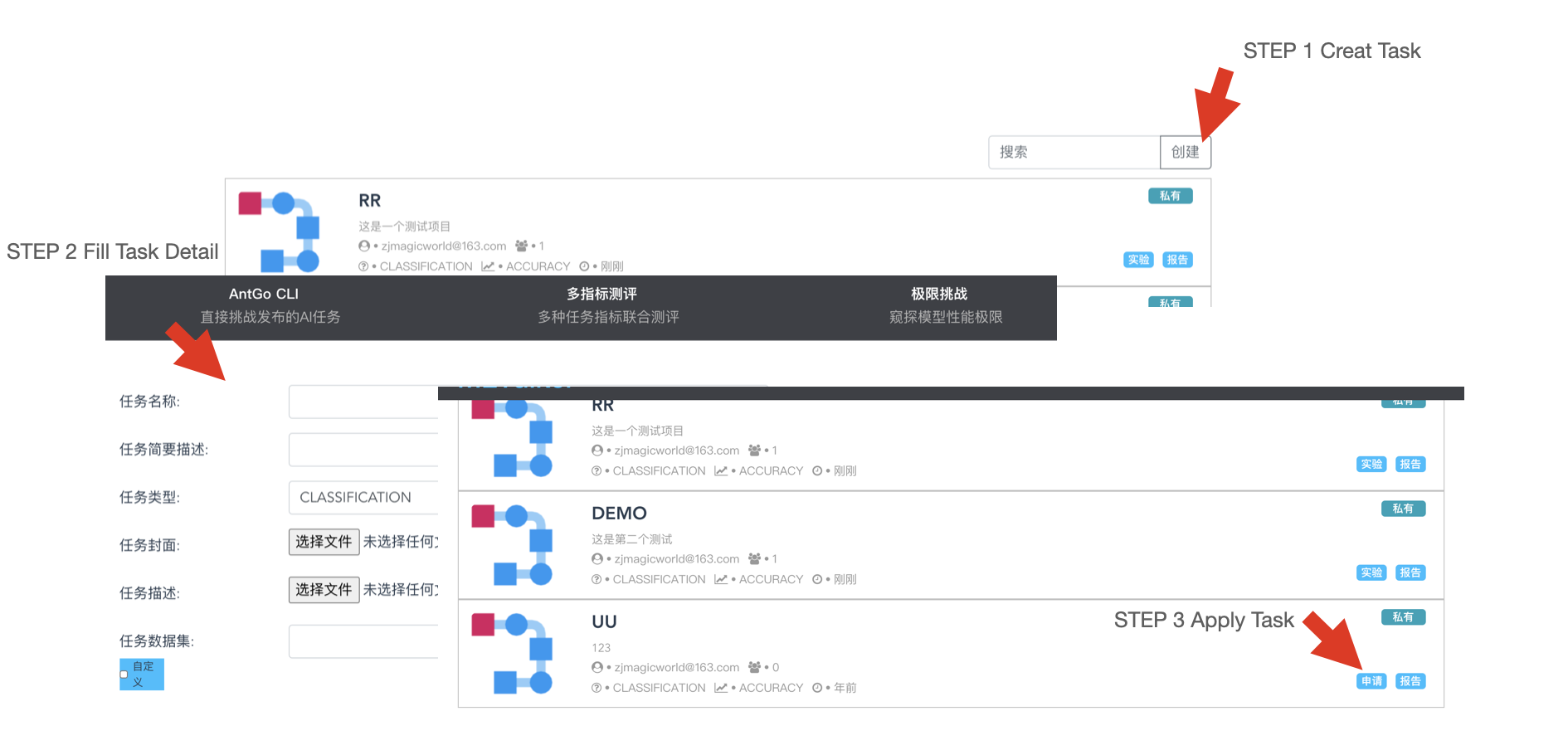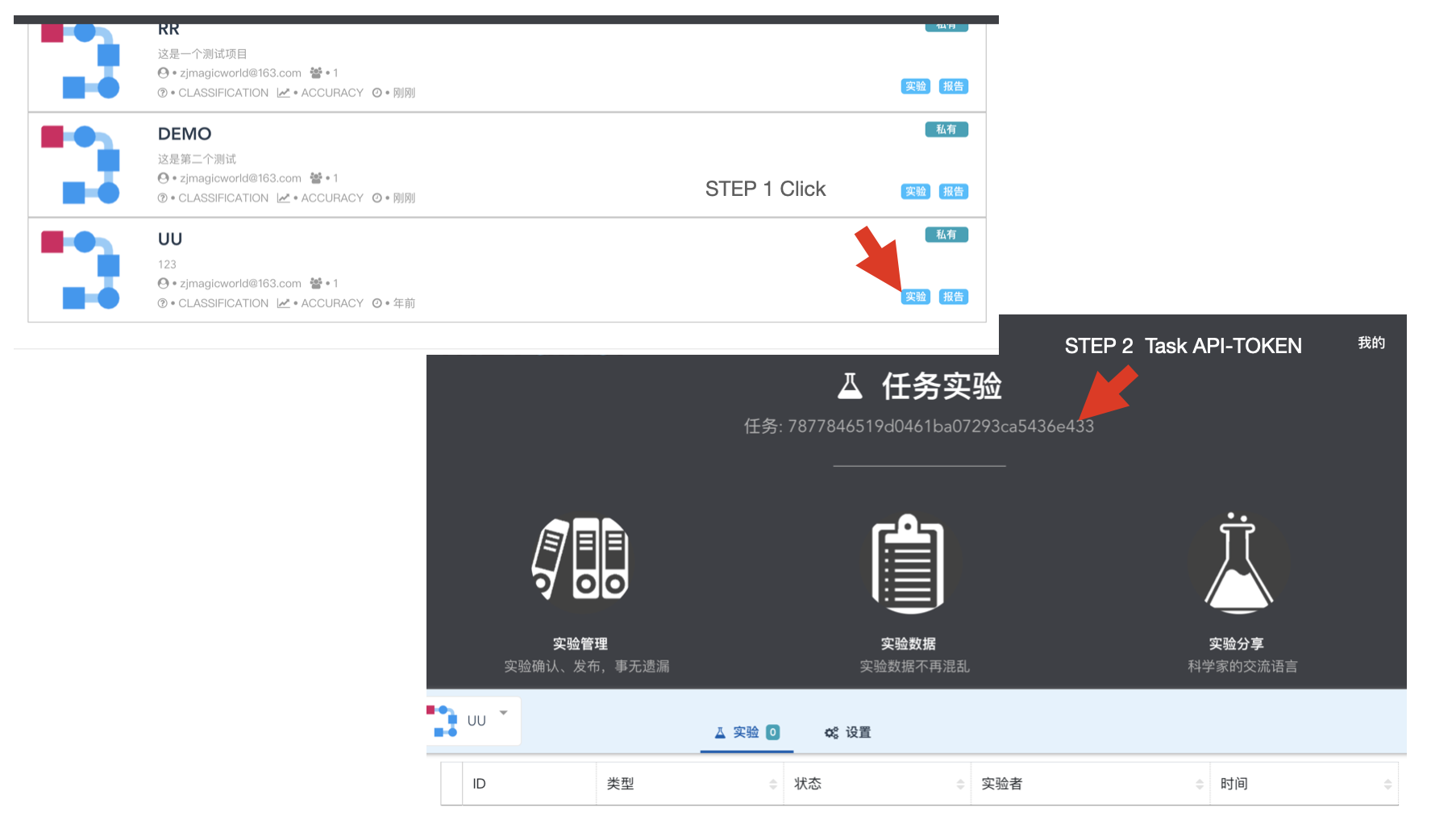machine learning experiment platform
Project description

Target
Antgo is a machine learning experiment manage platform, which has been integrated deeply with MLTalker. Antgo provides some easy cli commands to help ML researchers to manage, analyze, and challenge all kinds of ML tasks.
Based on amounts of statistical evaluation methods, Antgo could give a fruitful evaluation report, which help researchers analyze and trade-off their model.
Antgo tutorial is at MLTalker Blog.
Installation
1.step install Antgo:
pip install antgo
or install Antgo from source:
1. git clone https://github.com/jianzfb/antgo.git 2. cd antgo 3. pip install -r requirements.txt 4. python setup.py build_ext install
2.step generate config file and modify:
antgo config
in current folder, you will get:
config.xml
content in config.xml is like this:
<?xml version='1.0' encoding='utf-8'?>
<antgo>
<factory></factory>
<server_ip>www.mltalker.com</server_ip>
<server_port>8999</server_port>
<server_user_token></server_user_token>
</antgo>
In <factory> tag, fill your local folder. In this folder, you should build two subfolders
- dataset
all data should put here
- task
all task file should put here
In <server_user_token> tag, fill your user api-token. How to get your api-token, see next section.
3.step update config file:
antgo config --config=./config.xml
Register
Register in MLTalker.

All user experiment records would be managed by MLTalker in user’s personal page.
Quick Example
1.step Build and Apply Task
Build and Apply Task in

2.step Create Your Project
Create Your project

antgo startproject –name=MNIST –author=xxx –token=Task API-TOKEN
after that, you will get in current folder

3.step write your train and predict code
in MNIST_main.py, you should finish training_callback and infer_callback functions.
training_callback function:
def training_callback(data_source, dump_dir):
# warning: data_source include data and label
try:
# data_source.iterator_value() get generator
for index, (data, label) in enumerate(data_source.iterator_value()):
# data, label is data and its label
pass
except:
pass
# build logger to record important data
mc = mlogger.Container()
mc.loss = mlogger.metric.Simple('model loss')
epochs = 100
for epoch in range(epochs):
for _ in range(500):
# train model
...
# loss value
loss_val = ...
mc.loss.update(loss_val)
# save best model
...
infer_callback function:
def infer_callback(data_source, dump_dir):
# warning: dont include label data
# get dataset size
data_size = data_source.size
# parse data
try:
# data_source.iterator_value() get generator
for index, data in enumerate(data_source.iterator_value()):
pass
except:
pass
# load from model from ctx.from_experiment
# ctx.from_experiment is experiment_uuid (shell script)
# run predict
...
# record every sample predict result
for index in range(data_size):
ctx.recorder.record({
'RESULT': (int)(score[index])
})
you can go MLTalker Blog, to see more cases.
4.step Run Train Task
antgo train exp
5.step Run Challenge Task
antgo challenge exp experiment_uuid
Project details
Release history Release notifications | RSS feed
Download files
Download the file for your platform. If you're not sure which to choose, learn more about installing packages.











